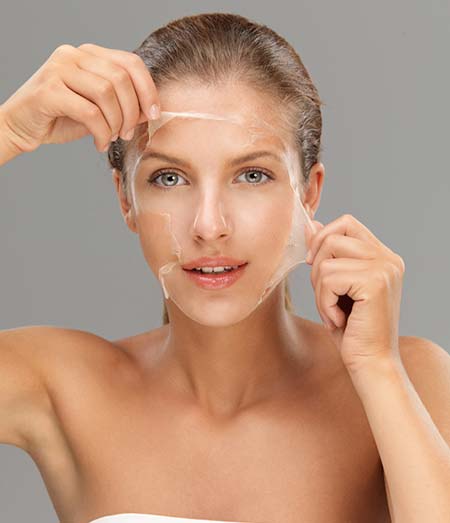Peeling skin is a skin condition where you tend to lose your skin’s outer layer- the epidermis. It is also known as desquamation. This can affect people in all age groups and population. Your skin can peel in patches or the whole body. Skin is a vital organ that protects your inner body cells. It provides a barrier to infections and other environmental factors. Significant shedding of the skin, lead to loss of its abilities. This puts you at a risk of serious damage and infections. Factors such as exposure to heat, humidity, or friction, may worsen the peeling of your skin.
Causes
- The peeling can be caused by direct damage on your skin leading to an inflammatory process. This is as a result of its repeated exposure to harsh environmental factors, which can irritate your skin. They include heat, sun rays, excessive humidity, the wind etc.
- It can result from a variety of disorders, diseases, and conditions, which may start some place other than your skin. For example allergies, immune system disorders, infections, contact dermatitis etc.
- Medication effect such as chemotherapy and application of topical medications.
- Genetic – it is a rare cause of peeling skin. The autosomal recessive syndrome is known as acral peeling skin, which is painless peeling of the epidermal layer. It occurs due to the separation of the epidermal layer from the other underlying layers.
Symptoms of a peeling skin
Peeling is accompanied by some symptoms which can be mild or chronic. Chronic symptoms vary depending on the underlying disorder, disease or condition. They may affect your cardiovascular system, digestive tract, nervous system, respiratory system, immune system or the reproductive system. Mild symptoms mainly affect the integumentary system. Here are some symptoms accompanying the condition.
- Flu-like symptom – widespread peeling of skin can lead to fever and chills. This because skin damage affects your internal temperature control system as a result of heat loss.
- Bleeding – this may occur when your blood vessels are exposed to harsh objects.
- Pain and itchiness – skin peeling resulting from dryness is painful and itchy.
- Dehydration – sloughing of the skin leads to fluid loss through the shed skin. In extreme case, it can lead to low blood volume. Other than the loss of fluid, shedding of skin also lead to protein loss since it is mainly a protein makeup. Your body is also hindered from absorbing essential nutrients such as vitamin A and D that maintain a healthy epidermal layer.
Other symptoms affecting the integumentary system, which includes the skin and associated tissues, are blistering, dryness, skin irritation, itching, burning sensation, redness etc.
Diagnosis
It is necessary to consult a certified specialist in case your condition is severe or you are not sure about the root cause of the problem. It is based on the skin appearance, history of exposure to any allergic or irritating substance and accompanying symptoms. Pinpointing when the symptoms first appeared will help your doctor in determining the root cause of your peeling skin.
Treatment
Treatment mainly depends on the underlying cause of the problem. Peeling of skin lead by exposure to environmental factors is mild and can be treated by use of over-the-counter creams or lotions or by use of oral drugs. Peeling skin caused by genetics has no known cure. Emollients are used to provide symptomatic relief for those with the autosomal recessive condition. They should be applied when your skin is still moist. Retinoid and occasionally phototherapy can improve symptoms in some individuals. In the case of complex issues, your dermatologist will recommend treatment depending on the diagnosis.
Prevention
It is important to wear sunscreen to prevent damage by sun rays. Avoid harsh products on your skin as they may cause irritations. Take warm instead of hot showers as they may strip off your natural oil. It is important to keep your skin hydrated by drinking plenty of water and moisturized always to avoid worsening the condition. Avoid tearing off peeling skin or scratching as it may lead to infection. You can use a pair of scissors to trim peeling skin.
Conclusion
Skin peeling can be also a signal of your immune system failure. Therefore, it is necessary to get a prompt diagnosis. This will enable you to treat the root cause other than treating the symptoms only. The information given in the article will enable you to take care of yourself to avoid the condition where necessary or when faced with the condition. It is necessary to leave a healthy lifestyle, which entails a balanced diet, good skin care routine, getting enough sleep, exercising, and taking plenty of water. This will help you to combat most of the causes of peeling skin.

